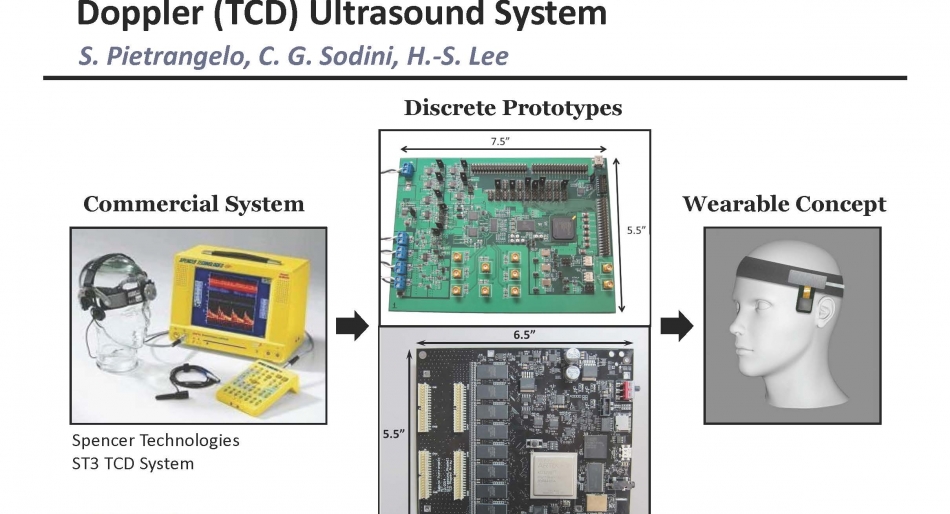
Authors: Sabino Pietrangelo, Charles Sodini, Hae-Sung Lee
The central objective of critical care for patients affected by neurotrauma, cerebrovascular accident (i.e., stroke), and other neurovascular pathologies is to monitor patient state and provide suitable medical intervention to mitigate secondary injury and aid in recovery. While several non-invasive cerebrovascular diagnostic modalities exist, the use of transcranial Doppler (TCD) sonography is highly compelling for certain diagnostic needs due to its safety in prolonged studies, high temporal resolution, and relative portability. Despite a growing list of potential diagnostic applications, several constraints – notably operator dependent measurement results and the need for manual vessel location – have generally confined the use of TCD ultrasound to highly-specific clinical environments (e.g., neurocritical care units and vascular laboratories).
